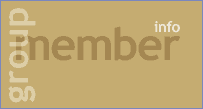


 |
|
"A lot of my friends were involved in [the Seevak FHAO Awards competition] . . . I didn't join until pretty late . . . the other girl who was working with Chava and Erin dropped out, and Chava asked me to join . . . and then I felt inspired to do it ." Cara Furman, who is spending the summer working as a counselor for five-year-olds at a local day-camp, will be a freshman and a possible psychology major at Haverford College in the fall. Eventually, she hopes to end up in business school and go into publishing. She very much values her experiences creating the project: I enjoyed doing it a lot because I felt like . . . it sort of initially was divided up because Chava and I were good at history and Erin was good at computers . . . but I ended up doing a lot of different kinds of work, knowing I was part of a team, and knowing we had to do it . . . the best part to the experience was working with the other members . . . I felt like I learned more about
Eleanor Roosevelt and I feel more comfortable using Mac computers and creating web pages and stuff like that- doing stuff that I wouldn't normally have been comfortable doing." She also feels that she'd like to continue studying this remarkable woman in the future: "I think that [Eleanor Roosevelt] was very consistent in what she stood for; I was impressed by the fact that she stuck by women and never turned on women . . . it seems like a lot of powerful women tend to turn on women and side with men so that they can hold onto their positions, but she never did that . . . I feel like even after the project, I don't know that much about
Eleanor Roosevelt . . . there's a lot more I could know about her and she's definitely someone I'd be interested in learning more about."
